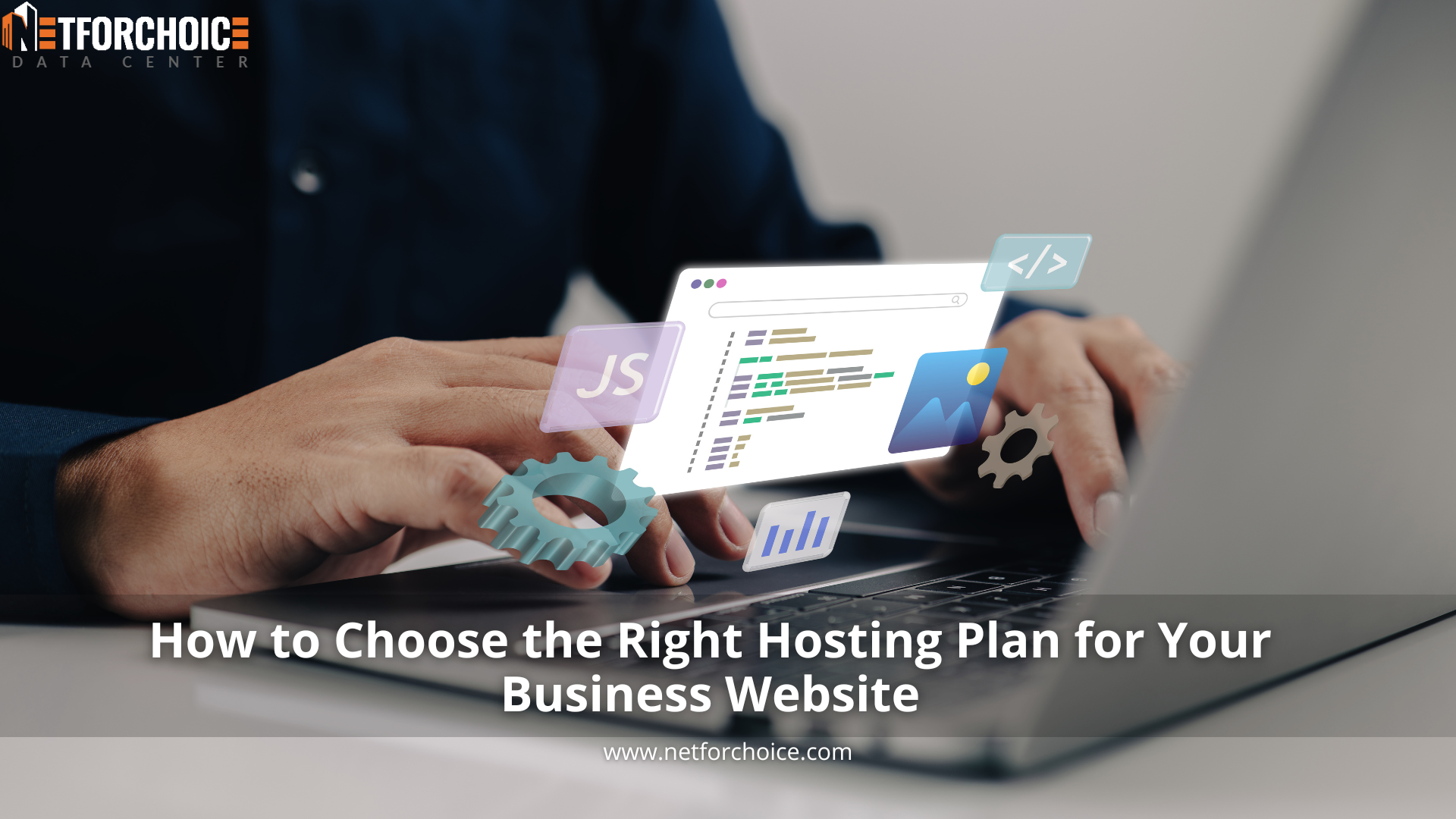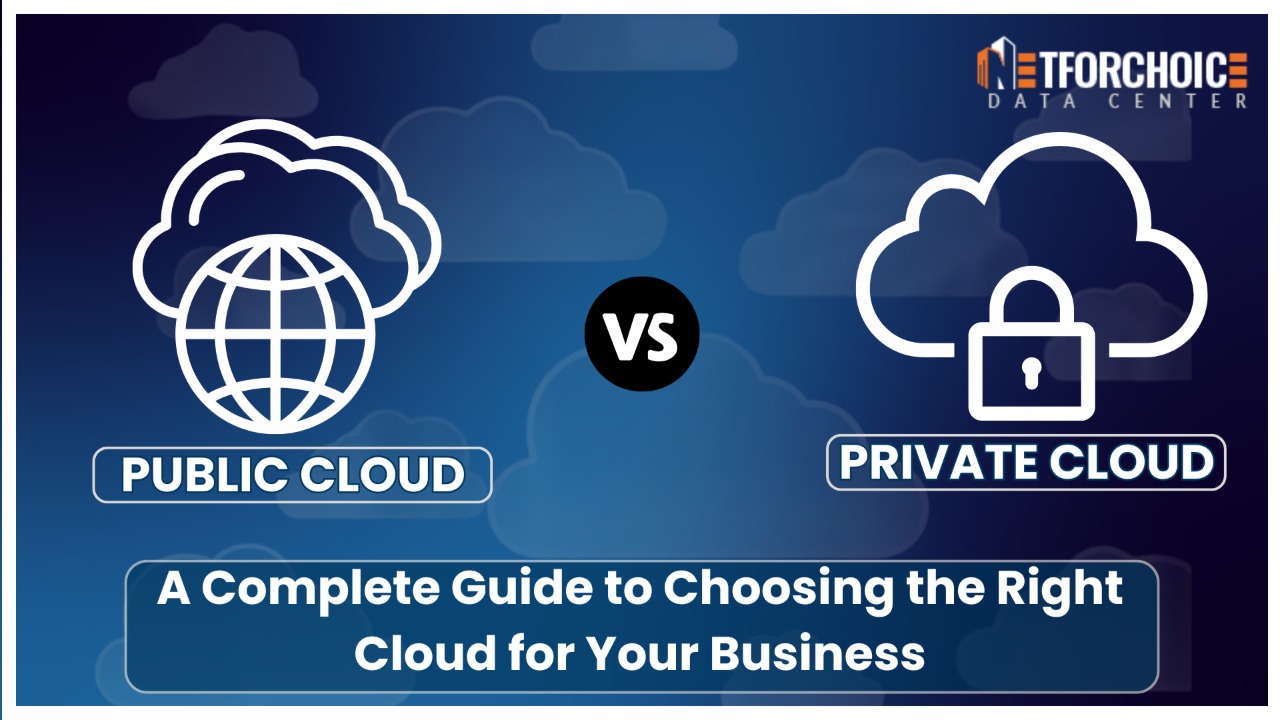How to Choose the Right Hosting Plan for Your Business Website

Selecting a wrong hosting plan for your business website will result in slow speed, failures, and hidden fees; selecting the correct one will ensure that your website loads quickly, scales without problems, and remains safe. Most owners just look at price. Don’t. This simple guide will teach you what matters most, how to compare hosting plans, and how to choose hosting for a new website without taking any chances.
Right Hosting Plan for Business Website: Why It Matters
Three important decisions are made by your hosting:
- Speed & UX: Improved SEO, increased conversions, and a better user experience are all correlated with fast hosting.
- Reliability: Even during periods of high traffic, your site continues to generate revenue with an uptime of 99.9% or higher.
- Security & Compliance: Data and brand confidence are safeguarded by integrated SSL, WAF, backups, and isolation.
The “best” plan for small business website hosting is not the one with the lowest sticker price; rather, it is the one that finds a balance between performance, security, and scale. Therefore, before making a purchase, it is crucial to understand the many types of hosting plans (shared, VPS, cloud, and dedicated).
Types of Hosting Plans Explained
- Shared Web Hosting
- Perfect for small websites or blogs.
- They are affordable, but because you share a server with other websites, resources are limited.
- Perfect for new businesses or recently established companies that require hosting for their small business websites.
- Virtual Private Server (VPS) Hosting
- Shared and dedicated hosting contract.
- Offer dedicated resources within a shared setting.
- Can be used in expanding business or e-commerce websites which require additional electricity.
- Dedicated Server Hosting
- Your website is provided a complete server of its own.
- To the highest level of performance, security and control.
- Ideal in large firms or industry within which firms need to comply.
- Cloud Hosting
- To be flexible and reliable, resources are distributed across a variety of servers.
- Scalable and pay-as-you-go pricing model.
- Ideal when the business has an international client or the unexpected traffic.
Read More: Top 10 Benefits of Hosting your Website on a Dedicated server
Factors to Consider When Selecting The Right Hosting Plan of Business Website
- Clarify Your Website Needs
The first step is to have a clear understanding of the needs for your website. The requirements of a web application or an e-commerce store are considerably different from those of a blog or brochure site. Think about the technology you’ll use (such as WordPress, PHP, or custom frameworks), the kind of website you’re creating, and the expected traffic over the following six to twelve months. More storage, IOPS, and perhaps CDN integration are required if you’re working with large media files like pictures and videos. Always budget for expansion; to prevent frequent migrations later, pick a plan that is just a little bit above your present requirements.
- Check the Performance Stack
Performance is the backbone of any successful website. A slow website can push customers away and hurt your SEO rankings. While evaluating hosting plans, look for SSD or NVMe storage instead of traditional HDDs, as they deliver much faster speeds. Ask how much CPU and RAM are allocated per plan and whether there are any hidden limits or throttling. Also, check if the provider offers built-in caching systems like Redis or OPcache and supports CDN integration for faster global delivery. The location of the data center also plays a big role; a server closer to your target audience means lower latency and better performance.
- Check the SLA (Uptime & Reliability)
Security must always be included in the hosting service and never be an add-on. Find deals which include Web Application Firewall (WAF), DDoS protection, malware detection, and freeSSL certificates. Account isolation is particularly important in the case of a shared or cloud hosting environment as it prevents the effects of a compromised site to the rest of the sites in the same server. There is also an extra level of protection in terms of automated daily backups and one-click recovery. Your data is secured with such features as the team-based access control and the two-factor authentication. This is important to firms dealing with consumer information or international payments.
- Examine Scale and Scalability
The need to host today is not going to be the same tomorrow. As your traffic increases, your power and flexibility will be required. That’s why scalability is key. Select a provider which will enable a hassle free upgrade of shared hosting to VPS, cloud or dedicated server. There should be vertical scaling (adding more CPU/RAM) and horizontal scaling (using more than one server or load balancers). One-click staging or cloning can also be useful to developers as they can test safely. Auto-scaling cloud hosting can be used to deal with spikes though without service interruption, which is the best to use in case of unpredictably high traffic or even seasonal traffic.
- Evaluate Support Quality
The experience with your hosting provider can be either successful or not, with the support. Although it is a typical feature of 24/7 support, you are supposed to investigate how responsive and knowledgeable their support team is. Are they offering actual answers. Determine whether they can help with DNS configuration, with issues of SSL, migrating into a new site, and optimizing the performance of the new site. A provider who has a good knowledge base, fast reaction and professional engineers is an addition of colossal value. When something breaks in the middle of the night, dependable support is like having an extra team member on your side.
- Knowledge of Pricing and Transparency
Most hosting companies offer low entry rates that attract customers only to realize the actual price upon renewal. The first and renewal pricing should always be compared. Determine whether necessary options such as SSL, backup systems, email services or anti-malware systems are included or not. Know the resource overage policies as well-there are hosts which may impose an extra fee in case you exceed storage, bandwidth or CPU resources. It is preferable to spend more to have a clear cut plan compared to being caught up in an unexpected cost later. Good, dependability, and extended confidence should not be limited to the lowest price.
- Choose the Right Type of Hosting plan
Last but not least, you should choose the kind of hosting plan that best fits your business at the present period. Shared hosting is the most inexpensive and it is effective with small websites or personal blogs, but has limited resources. VPS hosting is more affordable and provides more control and resources thus suitable in increasing the business. Assuming you do not need reliability but variable traffic, the cloud hosting is a good option since it is scalable and highly available. Dedicated servers are optimal and offer complete control over large business enterprises or industries that are companies with high compliances. It is the foundation of the selection of hosting to a new website: what would work today but would leave more space to expand.
Conclusion
When choosing the Right Hosting Plan to Business Website, it is not only a technical decision at the end of the day, but it is a growth strategy. Small Business Website Hosting to dedicated server which suits the enterprise level, the correct choice will see your website secure, scalable, and online all the time.
When you are in doubt over Types of Hosting Plans, you may keep in mind this simple formula:
- Small business/startup – Shared Hosting.
- Business/e-commerce growth – VPS Hosting.
- Enterprise/Compliance-based large business-to-business-oriented → Dedicated Hosting.
- Rapid expansion or international footprint – Cloud Hosting.
It is in this that NetForChoice will come in as an ideal match. NetForChoice as a Tier-4 data center company provides a complete host of hosting products- Shared Hosting, VPS Hosting, Dedicated Servers, and Cloud Hosting. With 24/7 professional support, high-performance security and scalability, NetForChoice guarantees you the Best hosting of business web-site, regardless of the size and industry.
[Contact Us Today Find Your Perfect Plan]
FAQs
- What is the best way to choose hosting of a new site?
Shared or cloud hosting is a good starting point when there is low traffic. Select VPS/dedicated hosting as your site and traffic increase.
- Which is the most appropriate hosting of business website in 2025?
Cloud and VPS hosting is useful with growing businesses whereas enterprises tend to need dedicated servers as the most secure and efficient system.
- Does Small Business Website Hosting compare with enterprise hosting?
Yes. Small business hosting is affordable and simple whereas enterprise hosting prioritizes on performance, compliance, and security.
- Is it possible to switch to another hosting?
Yes. Reliable and proven suppliers such as NetForChoice will enable you to upgrade as your business expands.
- Does hosting affect SEO?
Yes. Rapid, safe and dependable hosting enhance user experience which has a positive effect on SEO ranking.




